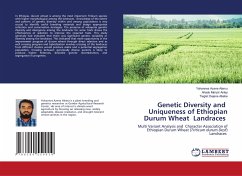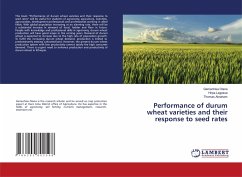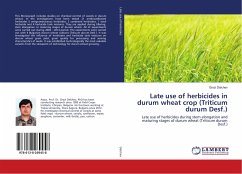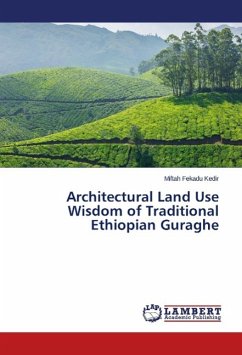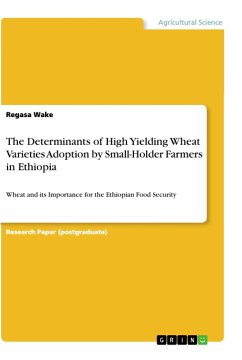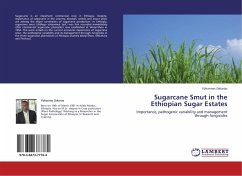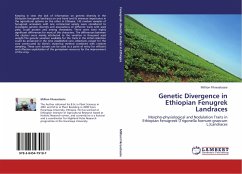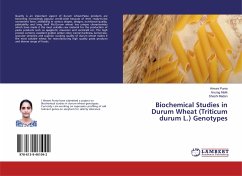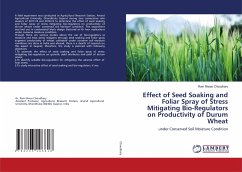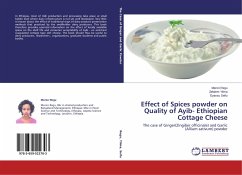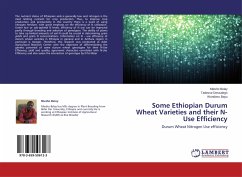
Some Ethiopian Durum Wheat Varieties and their N-Use Efficiency
Durum Wheat Nitrogen Use efficiency
Versandkostenfrei!
Versandfertig in 6-10 Tagen
27,99 €
inkl. MwSt.

PAYBACK Punkte
14 °P sammeln!
The nutrient status of Ethiopian soils is generally low and nitrogen is the most limiting nutrient for crop production. Thus, to improve crop production and productivity in this country there is a need of using nitrogen fertilizer, with great emphasis on the efficiency of N utilization. Under low or sub-optimal N levels, efficiency of N use can be improved partly through breeding and selection of genotypes. The ability of plants to take up limited amounts of soil N could be crucial in determining grain yields and grain N concentrations. Information on N - use efficiency of durum wheat varietie...
The nutrient status of Ethiopian soils is generally low and nitrogen is the most limiting nutrient for crop production. Thus, to improve crop production and productivity in this country there is a need of using nitrogen fertilizer, with great emphasis on the efficiency of N utilization. Under low or sub-optimal N levels, efficiency of N use can be improved partly through breeding and selection of genotypes. The ability of plants to take up limited amounts of soil N could be crucial in determining grain yields and grain N concentrations. Information on N - use efficiency of durum wheat varieties in Ethiopia in general and in Amhara region in particular is meager. Therefore, this research was conducted at Adet Agricultural Research Center with the objectives of differentiating the genetic potential of some durum wheat genotypes for their N-Use Efficiency, yield and quality, agronomic characters correlated with N-Use Efficiency and also assess the interaction of genotype by N fertilizer



